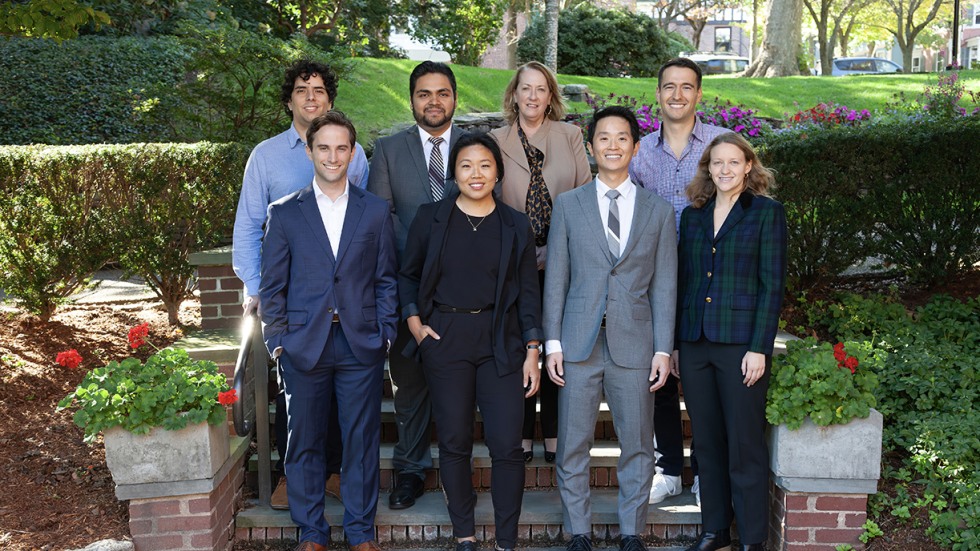PROVIDENCE, R.I.: Brown University announces the inaugural recipients of the Blavatnik Family Graduate Fellowship in Biology and Medicine, a new fellowship made possible through a generous, multi-year donation from the Blavatnik Family Foundation.
The eight Blavatnik Family Fellows were selected based on outstanding academic achievement and demonstrated potential for producing original research that advances scientific knowledge and understanding in the basic and clinical life sciences. The fellows’ research is representative of a diverse array of scientific disciplines.
“We are proud to establish this landmark graduate fellowship at Brown and look forward to the fellows’ future discoveries advancing human health and the life sciences,” said Len Blavatnik, head of the Blavatnik Family Foundation and chairman of Access Industries.
The new award comes as the University has significantly invested in initiatives that will elevate Brown’s capacity for world-class research. Graduate students in the life sciences are a crucial component in building this capacity through partnership with professors by ushering in innovative therapeutic approaches, technological advancements, and new insight in complex and challenging problems.
“We are very grateful to the Blavatnik Family Foundation for their support of our graduate students in the Division of Biology and Medicine,” said Mukesh K. Jain, MD, senior vice president for health affairs and dean of medicine and biological sciences at Brown University. “Through its philanthropy, the Blavatnik Family Foundation strives to improve the human condition, driven by the belief that innovation and discovery can transform the way we treat and even cure disease. Their mission clearly aligns with the research that we do in the Division of Biology and Medicine and with training the next generation of scientists and physician-scientists.”
The Blavatnik Family Fellows, with their programs of study, mentors, and research interests, are:
- Nigel Anderson is studying in the Ecology, Evolution, and Organismal Biology program with Professor Matt Fuxjager to understand the role of the brain in shaping the evolution of novel and elaborate animal behaviors.
- Kelsey Babcock is a scholar in the Neuroscience program working to understand the decline in new brain cell formation that occurs in Alzheimer’s disease to identify targets to prevent this diminution and improve the learning and memory deficits associated with the disease with Professors Ashley Webb and Alexander Fleischmann.
- Jennifer Cui is analyzing the structure and function of proteins involved in inflammation and cell signaling with Professor George Lisi in the Molecular Biology, Cell Biology and Biochemistry program.
- Audrey Dalgarno is working with Professor Nicola Neretti to identify changes to the spatial arrangement of DNA within the nucleus that occur with cellular senescence, an irreversible state of cell cycle arrest which contributes to aging, with the goal of extending human health and lifespans in the Molecular Biology, Cell Biology and Biochemistry program.
- Isaac Kim, a student in the Computational Biology program, is working to develop a prognostic model for Burkitt lymphoma in emerging nations by using cutting-edge sequencing and machine learning techniques with Professor Jeff Bailey.
- Noe Mercado is examining the role of human cytomegalovirus (CMV) in brain cancer malignancy and progression to develop novel targeted therapeutic approaches with Professor Sean Lawler in the Pathobiology program.
- Gabriel Monteiro da Silva, a student in the Molecular Biology, Cell Biology and Biochemistry program, is working with Professor Brenda Rubenstein to develop computer simulations to study how changes within the structural arrangements of cancer-causing proteins can lead to drug resistance and increased potential for harm, with the ultimate goal of guiding the design of next-generation therapeutics.
- Mattia Pizzagalli, a scholar in the Pathobiology program, is working with Professor Nikos Tapinos to investigate how changes in gene expression in individuals with glioblastoma, an incurable, aggressive type of brain tumor, may impact cancer progression and serve as potential therapeutic targets.
"The inaugural cohort of Blavatnik Family Fellows are exemplary young scientists already helping to advance knowledge in diverse fields of life science from DNA spacing to protein folding to animal behavior and from aging to cancer to neurodegenerative diseases,” said Elizabeth Harrington, PhD, associate dean for graduate and postdoctoral studies in the Division of Biology and Medicine at Brown University. “Their scholarly successes, along with their passion and creativity, will continue to drive innovation in basic science and medicine. We look forward to seeing their discoveries and insights come to light."
Each fellow will receive one academic year of support, as well as a research fund.
About the Division of Biology and Medicine
The Division of Biology and Medicine at Brown University comprises the Program in Biology and The Warren Alpert Medical School of Brown University. Its mission is to advance knowledge and improve the health and well-being of people and planet. For more information, visit biomed.brown.edu.
About the Blavatnik Family Foundation
The Blavatnik Family Foundation supports world-renowned educational, scientific, cultural, and charitable institutions in the United States, the United Kingdom, Israel, and across the globe. Led by Len Blavatnik, founder and chairman of Access Industries, the Foundation advances and promotes innovation, discovery, and creativity to benefit the whole of society. Over the past decade, the Foundation has contributed more than $1 billion to over 250 organizations. See more at www.blavatnikfoundation.org.
